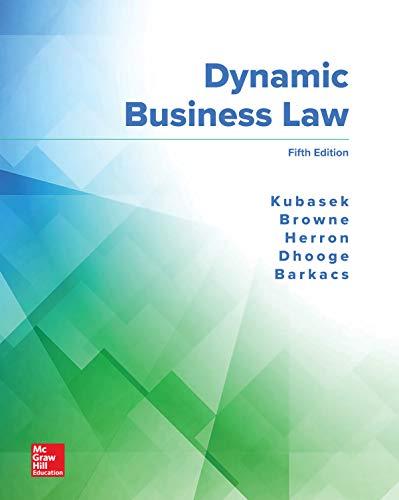Brent Bentrim purchased a house by obtaining a loan from Bank of America. In 2002, Bentrim borrowed
Question:
Brent Bentrim purchased a house by obtaining a loan from Bank of America. In 2002, Bentrim borrowed $182,700 from First Union National Bank, executing a mortgage and note in First Union’s favor during the process. Bentrim used the loan to pay off the first loan to Bank of America in full.
First Union subsequently merged with Wachovia Bank in 2006. Wachovia sold its interests in the note to The Money Store Service Corporation which was a subsidiary of The Money Store, LLC. This LLC was in turn a subsidiary of Wachovia Bank.
In 2011, Bentrim filed a complaint against Wells Fargo, who allegedly held the note after merging with Wachovia in 2009. Wells Fargo in turn counterclaimed for foreclosure on the balance of the note.
According to the court, Wachovia gained holderin-due-course status after because of the sale of the note to a subsidiary of its subsidiary, The Money Store Corp. Do you think this is what lawmakers had in mind when they created this doctrine? Since Wachovia held HDC status on the promissory note from Bentrim, would Wells Fargo also be considered a holder in due course after gaining the note through its merger with Wachovia? How did the court decide?
Step by Step Answer:

Dynamic Business Law
ISBN: 9781260247893
5th Edition
Authors: Nancy Kubasek, M. Neil Browne, Daniel Herron, Lucien Dhooge, Linda Barkacs





